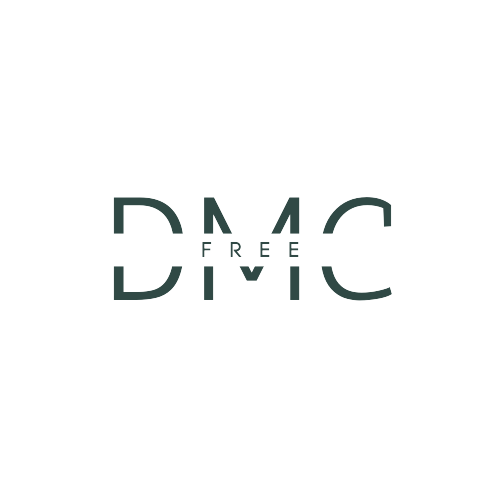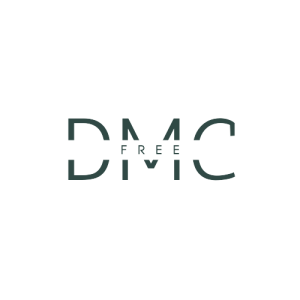
In today’s data-driven world, roles in the data industry are becoming increasingly specialized. Two roles often interchanged or misunderstood are Data Scientist and Data Analyst. While both roles work with data, their tasks’ scope, responsibilities, and depth can vary considerably. This article dissects and delineates the differences between these two important roles.
Table of Contents
Understanding The Roles
Data Scientist: This role is for those who love diving deep into data to derive predictive insights and build models. They often work with vast amounts of data, leverage machine learning and advanced statistical techniques, and provide organizations with perspectives that drive strategic decisions.
Data Analyst: Data Analysts primarily inspect, cleanse, and interpret data to uncover actionable insights. They play a crucial role in translating numbers into understandable visual representations and help businesses make informed, immediate decisions.
Key Differences: An Overview
| Criteria | Data Scientist | Data Analyst |
| Objective | To derive predictive insights, build data models, and innovate using data. | To inspect data, analyze trends, and provide actionable insights for immediate decision-making. |
| Depth of Analysis | Predictive Models, AI Algorithms, Research Papers. | More surface-level (but detailed) analysis, often statistical, to understand past patterns. |
| Skills Required | Python, R, Machine Learning, Deep Learning, Advanced Statistical Analysis, Big Data Technologies, Data Wrangling. | SQL, Basic Statistical Analysis, Excel, Data Visualization Tools like Tableau or Power BI, Data Cleaning Techniques. |
| Tools Often Used | TensorFlow, Jupyter, Hadoop, Spark, etc. | Excel, SQL, Tableau, Power BI, Google Analytics, etc. |
| End Product | SQL, Basic Statistical Analysis, Excel, Data Visualization Tools like Tableau or Power BI, and Data Cleaning Techniques. | Reports, Dashboards, Visualizations, Briefings. |
| Decision Making | Provides the foundation for strategic decisions using predictive analysis. | Provides data-driven insights for immediate decisions based on past and present data. |
Delving Deeper Into The Roles
1. Skill Set Differences:
- Data Scientist:
- Programming Prowess: Typically, data scientists are proficient in programming languages like Python and R. This allows them to process data, conduct complex analyses, and even build machine learning models.
- Machine Learning: A crucial skill for many data scientists, especially if they work in sectors like e-commerce or finance, where predictive modelling is vital.
- Statistical Modeling: Data scientists dive deep into the theoretical aspects of data to deduce information and build models that can predict future trends.
- Data Analyst:
- Data Wrangling: Data analysts often spend a significant portion of their time preparing and cleaning data for analysis.
- Visualization: Analysts use tools like Tableau, Power BI, and Excel to create understandable visual representations of data.
- Statistical Analysis: While not as in-depth as data scientists, analysts also employ statistical methods to deduce patterns from data.
2. Nature of Tasks:
- Data Scientist:
- They often focus on answering the “what could happen?” question. They use historical data to train models that predict future outcomes.
- A significant portion of their role involves experimentation and research.
- They often collaborate with stakeholders to understand business problems and frame them as analytical questions.
- Data Analyst:
- Their primary task is to answer the “what happened?” question. They look at historical data to identify trends and patterns.
- They create regular reports and dashboards for different departments.
- They often work closely with a business team, aiding immediate decision-making processes.
3. Decision Making:
- Data Scientist: The insights scientists derive are often used for long-term strategic planning. Their predictions, when accurate, can shape the future of a business.
- Data Analyst: They aid in tactical, immediate decision-making. The reports and insights provided by analysts influence day-to-day operations and short-term planning.

Which Role Is Right For You?
If you want to embark on a career in data, consider enrolling in Data Analytics Courses to gauge your interests and long-term goals. A data scientist role might be apt if you have a penchant for deep research and complex problem-solving and are interested in machine learning or AI. However, data analysis could be your calling if you prefer a more direct impact on business decisions, enjoy working closely with business teams, and have an eye for detail.
In Conclusion
While there’s some overlap between data scientists and data analysts, they play distinct roles in the data analytics process. Both are crucial for a modern organization’s success. As the data field evolves, the lines between these roles might blur, merge, or further diversify. But for now, understanding these differences is crucial for aspiring professionals and businesses alike.
Frequently Asked Questions (FAQs)
Q. Are data scientists and data analysts in competition with each other?
No, they are not. While both roles revolve around data, they serve different organisational functions. Data scientists focus on prediction and driving strategy, while data analysts emphasize understanding current trends and assisting in immediate decisions. Often, they work hand in hand.
Q. Do I need a PhD to become a data scientist?
While having a PhD can be beneficial, especially in a relevant field like statistics or computer science, it’s not mandatory. Many data scientists have Master’s degrees or even just Bachelor’s degrees but possess strong experience and skills.
Q. Which role earns more – data scientist or data analyst?
Typically, data scientists have a higher earning potential than data analysts, mainly due to the depth of knowledge required and their strategic influence on business decisions. However, salaries vary widely based on location, industry, and individual company needs.
Q. Can a data analyst transition into a data scientist role?
Absolutely! After gaining experience and furthering their education in advanced statistics, machine learning, and other necessary areas, many data analysts transition into data scientist roles.
Q. Are the tools used by data scientists and data analysts completely different?
There’s some overlap. For instance, both might use Python or R for certain tasks. However, data scientists often use more specialized tools for machine learning and big data, while analysts might use more visualization-focused tools.
Q. Is it essential to know the coding for both roles?
For data scientists, coding is usually essential because they often need to build models, work with big data tools, and engage in deep data manipulation. For data analysts, while coding can be a valuable skill (especially for complex data wrangling and using advanced visualization tools), many roles rely more on tools like Excel or dedicated visualization software.
Q. With the rise of AI and automation, is the data analyst role at risk?
Automation will inevitably impact all sectors, including data. Simple, repetitive tasks done by analysts might get automated. However, the human touch in understanding business contexts, providing unique insights, and communicating findings effectively remains irreplaceable. Analysts might need to adapt and upskill, but the role won’t vanish.
Q. How do I decide which role is right for me?
Reflect on what you enjoy: deep research, building predictive models, and long-term strategic work (Data Scientist) or more immediate, business-focused analysis and visual storytelling (Data Analyst). Your preference, current skill set and willingness to learn will guide your decision.
Remember, the world of data is vast, and these roles are just two potential paths. Whether you’re a scientist, analyst, or somewhere in between, the key is continuous learning and passion for data.


